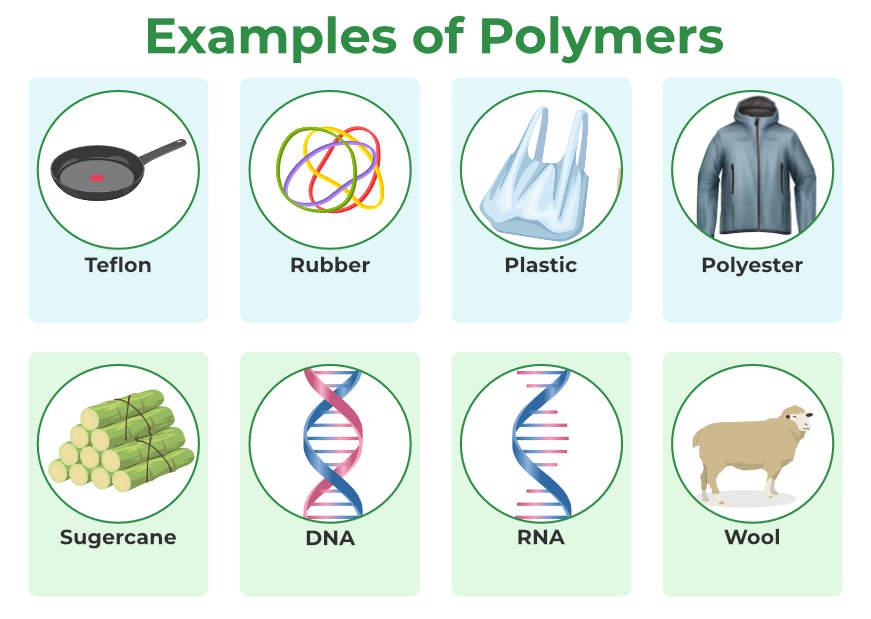Comprehending Polymers: The Scientific Research Behind Versatile Products
Comprehending Polymers: The Scientific Research Behind Versatile Products
Blog Article
Discovering the Varied Applications and Advantages of Polymers in Different Industries
Polymers, with their diverse array of properties and functionalities, have actually ended up being indispensable in numerous industries, each enjoying one-of-a-kind advantages from their application. From improving security and performance in the vehicle field to revolutionizing clinical devices in the medical care industry, polymers play a crucial role.
Automotive Industry Applications
Polymers play a critical duty in enhancing the performance and durability of different components within the automobile market. These versatile materials are thoroughly utilized in the manufacturing of different parts, ranging from indoor parts to under-the-hood applications. One popular use polymers in the automotive sector is in the manufacturing of light-weight components. By replacing standard steel get rid of polymer-based alternatives, cars can accomplish better fuel efficiency without jeopardizing on toughness or security.

Healthcare Industry Advantages
In various health care applications, the benefits of using polymers are commonly acknowledged for their varied variety of beneficial residential properties. Polymers play a crucial role in the healthcare industry due to their versatility, biocompatibility, and cost-effectiveness. Among the primary advantages of polymers in health care is their capability to be tailored to particular requirements, such as versatility, resilience, and biodegradability, making them optimal for a variety of medical applications.
Polymer-based materials are thoroughly made use of in medical tools, such as catheters, implants, prosthetics, and medication distribution systems, as a result of their biocompatibility and capability to imitate all-natural tissues. These materials can decrease the risk of allergic responses or denials, improving patient safety and security and end results. In addition, polymers are light-weight, making them suitable for wearable medical devices and ensuring person convenience.
Additionally, polymers make it possible for the development of cutting-edge treatment approaches, such as hydrogels for tissue design and nanocomposites for targeted medicine shipment. Their simplicity of handling and sterilization makes them vital for keeping high requirements of health in health care setups. Overall, the diverse advantages of polymers add significantly to advancements in medical innovation and individual treatment.
Environmental Benefits of Polymers

Furthermore, polymers can add to power savings because of their light-weight nature. In industries such as transportation, lightweight polymer materials can aid reduce fuel consumption and greenhouse gas exhausts. Additionally, polymers can enable the growth of energy-efficient products such as insulation materials that enhance energy conservation in buildings.
In addition, polymers play a critical duty in reducing water pollution. The use of polymer-based purification systems can properly eliminate contaminants and impurities from wastewater, safeguarding water sources and environments. Overall, the ecological advantages of polymers make them useful properties in advertising sustainability and environmentally friendly techniques across various markets.
Polymers in Electronic Devices and Technology
Taking into consideration the raising demand for cutting-edge and lasting services in modern markets, the assimilation of innovative polymer technologies in the world of electronics and technology has actually become a crucial strategy for driving efficiency and efficiency. Polymers have revolutionized the electronic devices sector by making it possible for the production of lighter, a lot more flexible, and sturdy electronic tools. From smart devices to medical gadgets, polymers play an essential role in improving product layout and functionality.
One significant advantage of polymers you can look here in electronic devices is their protecting residential properties, which help shield delicate electronic elements from environmental factors and electrical interference. Additionally, polymers are important in the development of versatile display screens, wearable innovation, and published electronic devices, supplying endless opportunities for creating wise and interconnected tools.
Additionally, making use of polymers in digital product packaging has resulted in innovations in miniaturization and thermal management, improving the overall efficiency and integrity of electronic systems. As technology continues to progress, the versatility and adaptability of polymers will definitely drive additionally technology in the electronic devices market, forming the future of modern technology.
Role of Polymers in Building And Construction and Facilities
The assimilation of sophisticated polymer products in building and facilities jobs has actually transformed the method structures are designed and constructed in modern times. Polymers provide various advantages in the building and construction sector as a result of their convenience, toughness, and cost-effectiveness. One vital duty of polymers in building and construction is their usage in finishes and sealers, supplying defense against environmental variables such as wetness, UV radiation, and corrosion. Additionally, polymers are used in the manufacturing of lightweight and high-strength composite products, improving the architectural integrity of structures while lowering general weight.
Moreover, polymers play an essential role in sustainable building practices by making it possible for the development of energy-efficient frameworks. Shielding products made from polymers assist control interior temperatures, lowering the need for home heating and cooling systems and inevitably look at this web-site decreasing energy intake. more info here In addition, the use of polymer-based composites in facilities jobs such as bridges and roadways enhances their durability and lowers maintenance expenses. On the whole, the incorporation of polymers in construction and facilities displays their significant influence on modern-day engineering practices.
Final Thought
In final thought, polymers play an essential duty in different markets such as automobile, healthcare, ecological, electronics, and building and construction. From boosting gas performance in automobiles to improving medical tools, polymers offer countless benefits.
Report this page